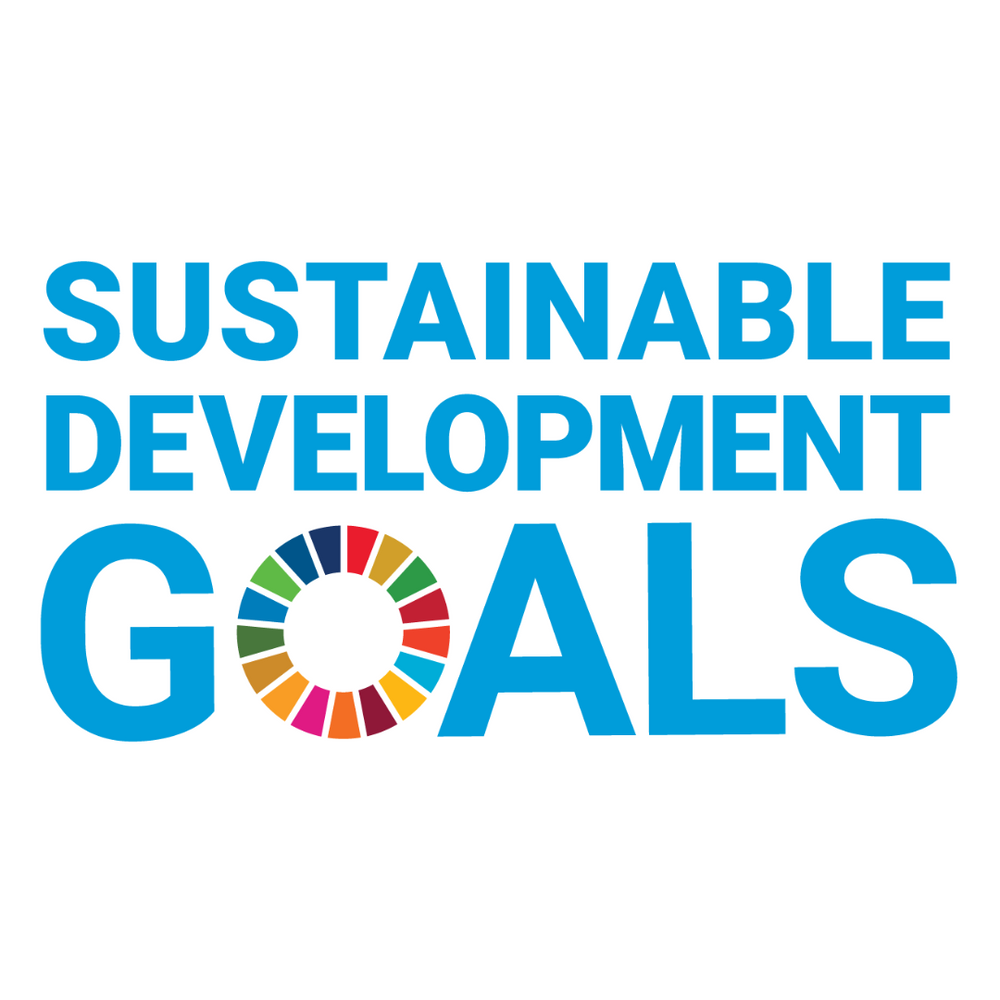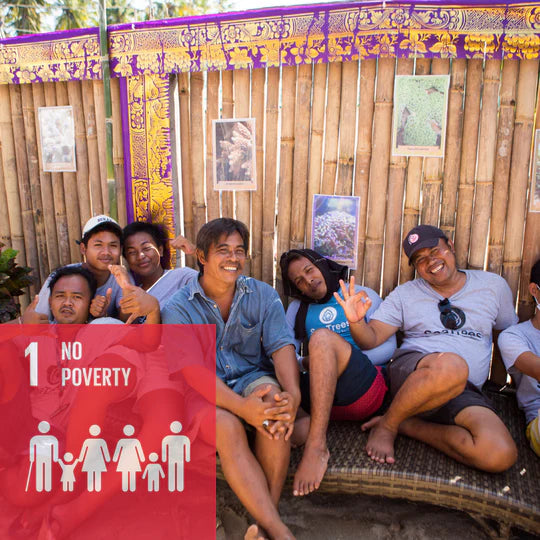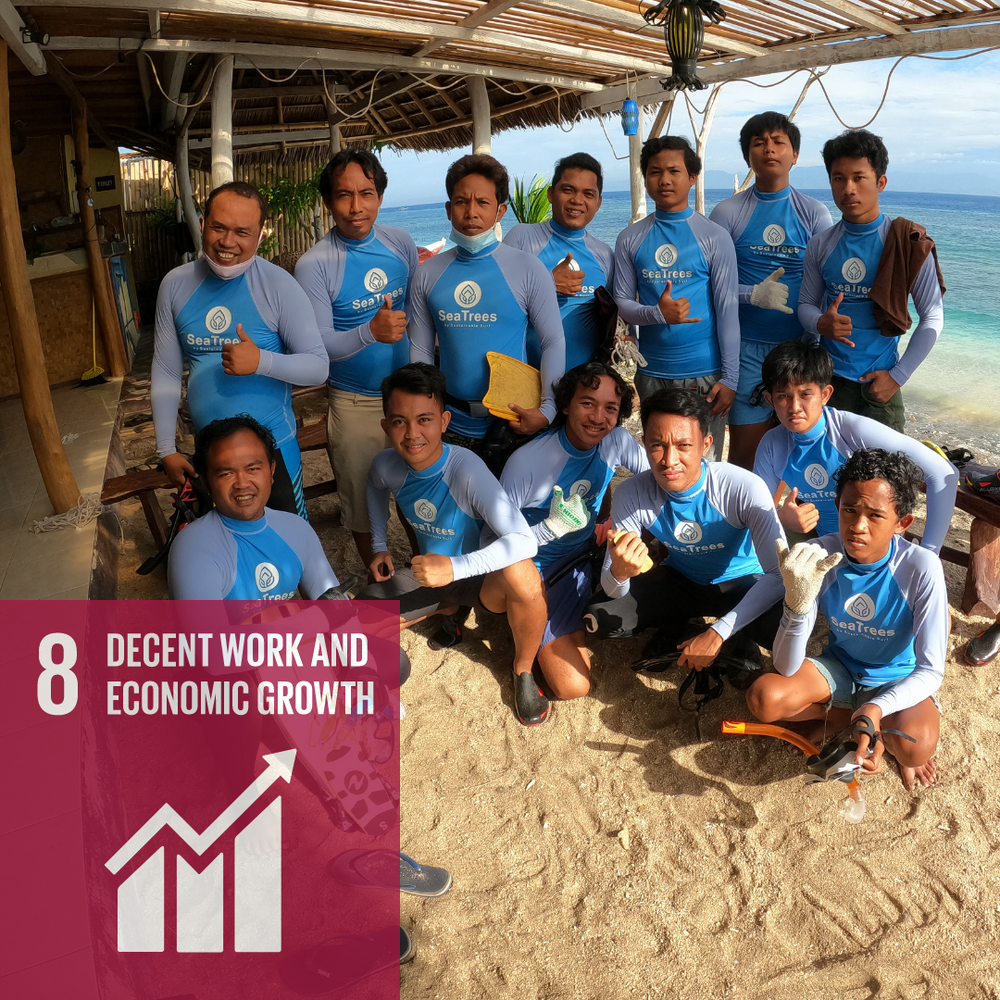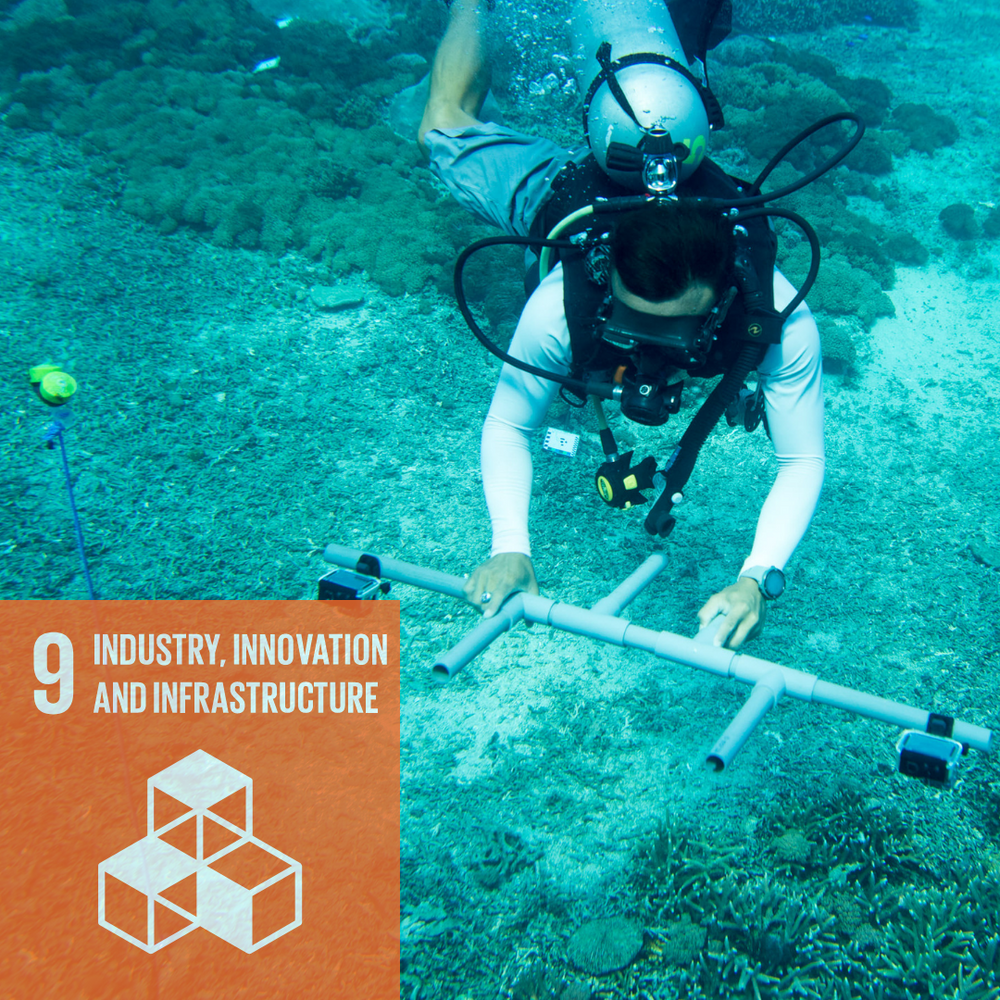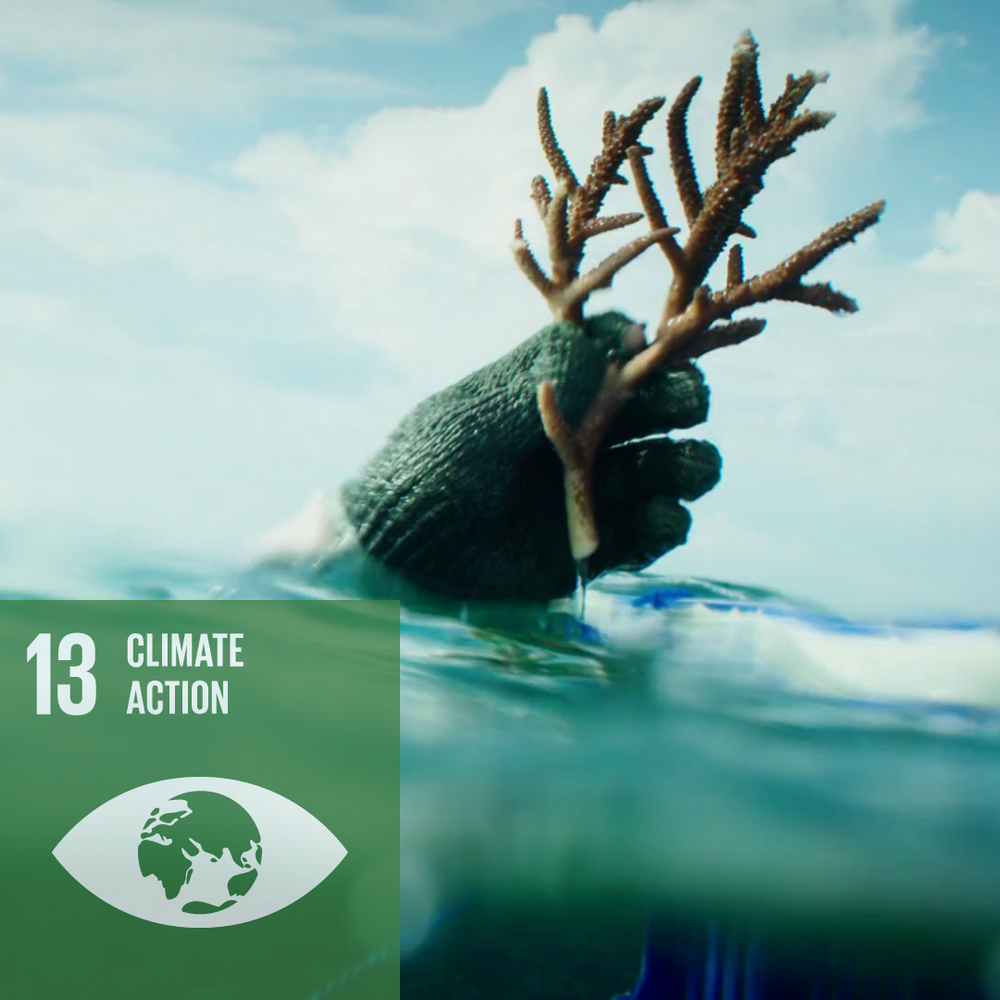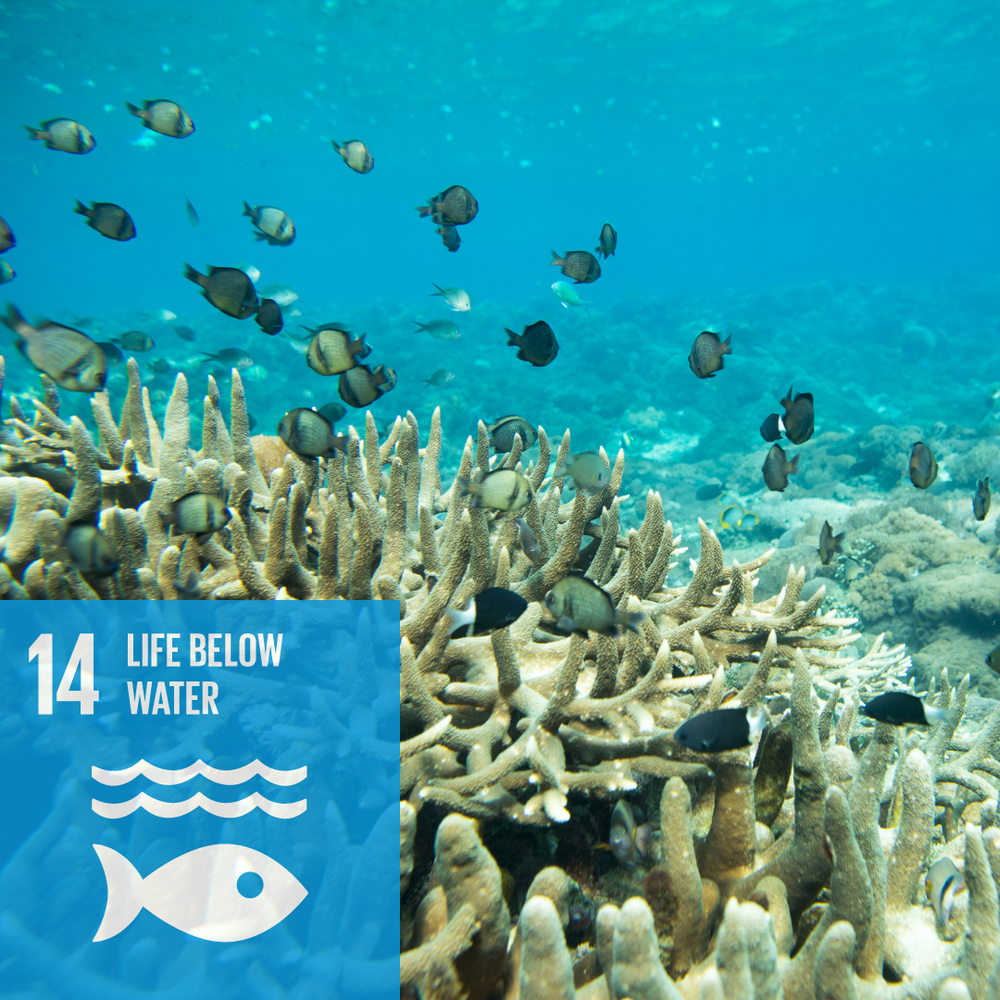
Bali, Indonesia
This page details the UN Sustainable Development Goals being addressed by the SeaTrees project on Nusa Penida Island in Bali, Indonesia.
Sustainable Development in Bali
Tourism is one of the main economic pillars in Bali, but there is potential for negative impacts on the local environment. The coral reefs of Nusa Penida Island have been damaged by tourist pontoon boat anchors, which drag along the coral bed under high currents. This flattens and destroys live coral reefs.
Working with Balinese nonprofit Ocean Gardener, this project employs a team of local fisher-people and divers to restore the degraded coral reefs of Nusa Penida Island and educate the local community on best practices to protect the reefs moving forward.
Creating Sustainable Benefits
This project provides living-wage employment and training opportunities for the local community, empowers gender equity, protects the area from increased climate change impacts, and safeguards critical habitats for several vulnerable species. This in turn drives all of the other Sustainable Development benefits produced by the project.


